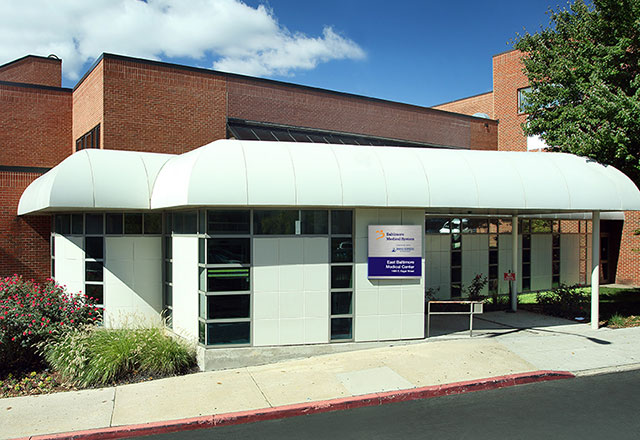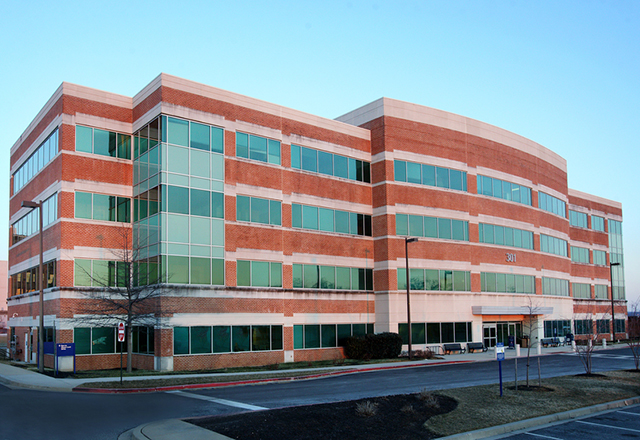PUBLISHED IN JOHNS HOPKINS COMMUNITY PHYSICIANS FY20 ANNUAL REPORT
FY20 Annual Report: Clinical Innovations
Primary Care Clinical Innovations
Johns Hopkins Community Physicians (JHCP) is dedicated to transforming the way that care is delivered through the development of innovative and high value primary care models. Overseen by JHCP chief of primary care clinical innovation, Michael Albert, these programs are designed to provide exceptional experience and wrap-around care for the segments of patients they serve, with a majority of models focused on patients that need additional time and attention. JHCP’s clinical innovations are a vital step towards expanding upon value-based care. Many programs flourished in fiscal year 2020. See summaries below.
Direct Primary Care
 FY20 Direct Primary Care providers Norman Dy (left) and Carolyn Le (right)
FY20 Direct Primary Care providers Norman Dy (left) and Carolyn Le (right)Direct Primary Care (DPC) is fundamentally changing the delivery of primary care. Launched in January, 2019, this practice is part of a series of innovative primary care models in the JHCP platform. The DPC practice offers Johns Hopkins Health System employees an opportunity to connect with a primary care provider through extended hours and virtual services. Each primary care provider manages a smaller patient panel, allowing the provider more time to meet with their patients and promote a personalized care experience to employees. Led by two providers in fiscal year 2020, Norman Dy and Carolyn Le, the practice continued to achieve success in its second year. DPC’s longstanding integration of video, telephonic and MyChart delivered care, in addition to standard in-person medical care, helped it seamlessly care for its patients through the COVID-19 pandemic. The majority of DPC patients engaged with the team, often multiple times, in a very challenging 2020. Despite these challenges, DPC was ranked at the top of JHM primary care practices in both patient experience scores and quality metrics in 2020. The program expanded its enrollees by 25 percent in fiscal year 2020, and hopes to extend that trend into the future.
Johns Hopkins Home Based Primary Care
 Amy Kilen, JHCP and JHOME nurse practitioner
Amy Kilen, JHCP and JHOME nurse practitioner Johns Hopkins Home Based Primary Care (JHOME) is an innovation in primary care that also features “right-sized” panels. Its major point of differentiation lies in its name – it is home-based. JHOME had served home-bound elderly patients for decades as part of the Bayview geriatric academic program, before transitioning to Johns Hopkins Health System in 2019, under the direction of Johns Hopkins Home Care Group and Johns Hopkins Community Physicians. The multidisciplinary provider team, comprised of one physician and three nurse practitioners, ensures that home-bound geriatric patients have access to seamless primary care. In fiscal year 2020, the program’s panel doubled in size and its Johns Hopkins Medicare Advantage panel also grew rapidly. The JHOME team pivoted quickly to telemedicine visits during the COVID-19 pandemic, while still performing essential house calls safely.
Priority Access Primary Care
 East Baltimore Medical Center
East Baltimore Medical CenterPriority Access Primary Care (PAPC) is an innovative primary care model that employs a small, “right-sized” panel approach to provide more comprehensive care to a select subset of medically complex Medicaid patients in East Baltimore. Patients have 24/7 direct phone access to their provider and behavioral health resources are embedded in the program. With smaller panels, providers offer extended office visits and are fully available via phone to their patients, specialists and coordinating hospitals. Templates are fully open to meet the needs of their patients. The program, currently located at East Baltimore Medical Center, has continued to demonstrate great outcomes and positive results for its patients. Fiscal year 2020 saw the program maintain its 55 to 60 percent reduction in emergency department visits and hospitalizations for its high-risk patients.
Multidisciplinary Empowerment for Sustainable Health
 Bayview Internal Medicine
Bayview Internal MedicineMultidisciplinary Empowerment for Sustainable Health (MESH) program is modeled after PAPC with small panels of high-risk patients, managed by a multidisciplinary team. The major difference between the programs is that MESH was developed for Medicare and Medicare Advantage patients and is located at JHCP’s Bayview General Internal Medicine practice. MESH began in fiscal year 2019 and is led by office medical director and director of primary care services at Bayview, Heather Agee. Like PAPC, MESH frees its providers from volume-based care and has also resulted in multiple positive outcomes. In its second year, MESH solidified team-based and care management processes and embedded behavioral health services into its offerings. The MESH program, coordinating actively with JHOME to manage high-risk patients who are not homebound or home-limited, saw its panel size grow to 130 patients in fiscal year 2020 and achieved a 40 percent reduction in emergency department visits.
Small High Acuity/Risk Panel
 Michael Albert, chief of primary care clinical innovation
Michael Albert, chief of primary care clinical innovationThe Small High Acuity/Risk Panel program (SHARP) also saw significant growth in its second year. This program utilizes a multidisciplinary, team-based approach. The model features a nurse practitioner that works at the center of a pod of several primary care providers (PCP), supporting them in the management of each of their highest-risk patients. This embedded, small-panel “co-PCP” enhances and adds to the standard level of care of a single full-panel PCP, allowing for more comprehensive care including extended visits, increased access, virtual services and care coordination. Starting as a pilot at JHCP’s White Marsh location, SHARP expanded to EBMC, Westminster and Hagerstown locations during fiscal year 2020. The program added four nurse practitioners to its arsenal, for a total of six, and grew its panel from 200 to well over 600 patients. SHARP adapted to the COVID-19 pandemic by providing much needed telemedicine support to some of the more complex patients in their practices.
